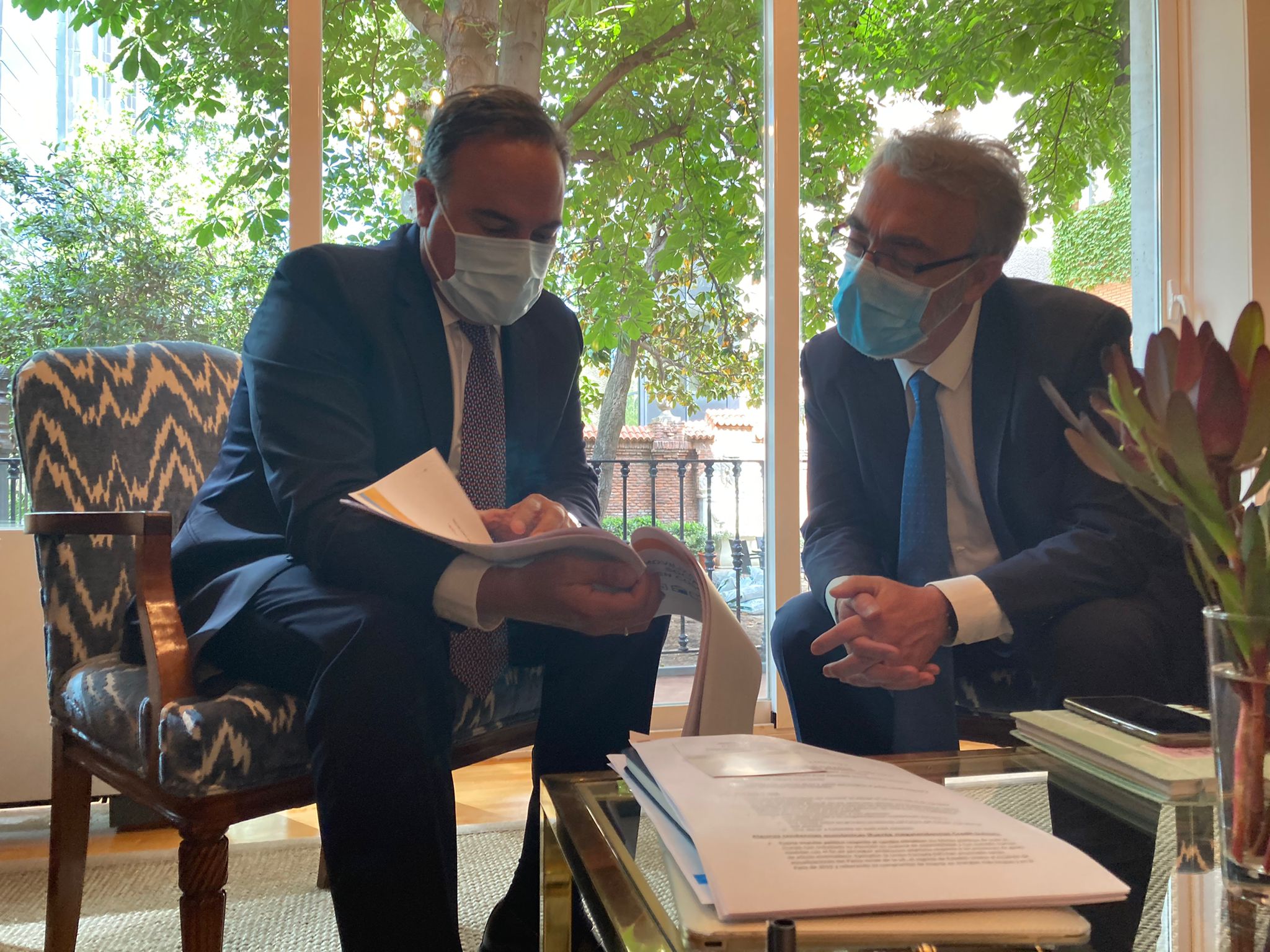Eduardo González
The Chinese ambassador in Madrid, Wu Haitao, assured that the EU is a “strategic partner” with which Beijing maintains “more consensus than disagreements”, but warned, without further allusions, that his country “does not seek hegemony, does not intervene in internal affairs and does not export its political model to other countries”.
“Europe is for China an important partner and a diplomatic priority and China is in favor of Europe playing a greater role on the international stage”, the ambassador said during a videoconference event organized this past Wednesday by Executive Forum. “We have differences in terms of our histories, our cultures and our social systems, that is normal, but that cannot affect the dialogue and cooperation between China and the EU” because “there are no fundamental conflicts of interests, cooperation is greater than competition, there is more consensus than disagreement and China and EU are strategic partners, not systemic rivals”, he continued.
“China supports the EU’s strategic autonomy and expects the EU to develop its relations with China in an impartial, fair and positive way”, the ambassador said. In that sense, he added, “Spain is an important partner and a good friend within the EU, and we are confident of Spain’s role in promoting healthy and sustainable EU-China relations”. In any case, Wu warned, “the objective of China’s foreign policy is to contribute to the progress of humanity through its own development and to play an active role for peace”, because “China does not seek hegemony, does not intervene in the internal affairs of other countries and does not export its political model”.
The ambassador’s words come at a time of high tension between China and the European Union after the EU Foreign Affairs Council resorted on March 22 to its Comprehensive Sanctions Regime for human rights violations to act against several Chinese officials involved in arbitrary mass arrests of Uighurs in the Xinjiang region of China. These are the first European sanctions against this country since 1989, when the then European Community banned arms exports to the Asian giant due to the Tiananmen massacre.
Xi Jinping’s government reacted against this “serious interference in China’s internal affairs” by approving a series of similar measures against a dozen European citizens, including five MEPs, three national MPs and two academics, and against four entities. The Ministry of Foreign Affairs subsequently met with Wu Haitao to convey Spain’s “firm rejection” of the “disproportionate” measures adopted by Beijing.
Relations with Spain
Regarding Spain, the ambassador yesterday appealed at the Executive Forum colloquium to “respect, equality and mutual benefit” to develop bilateral relations based on “the defense of multilateralism” and “an international order centered on international law and international trade within the WTO”. He also urged to strengthen cooperation between the two countries on climate change and Agenda 2030 and in “upholding the common values of development, solidarity, peace, justice, democracy and freedom”.
According to Wu, bilateral relations “have withstood the test of COVID” and are characterized by “great resilience” and “mutual understanding on issues concerning sovereignty and territorial integrity”. He also recalled that “China is Spain’s first trading partner outside the EU and Spain is China’s fifth trading partner within the EU”, even “in the midst of the sharp contraction of global trade” caused by the pandemic.







